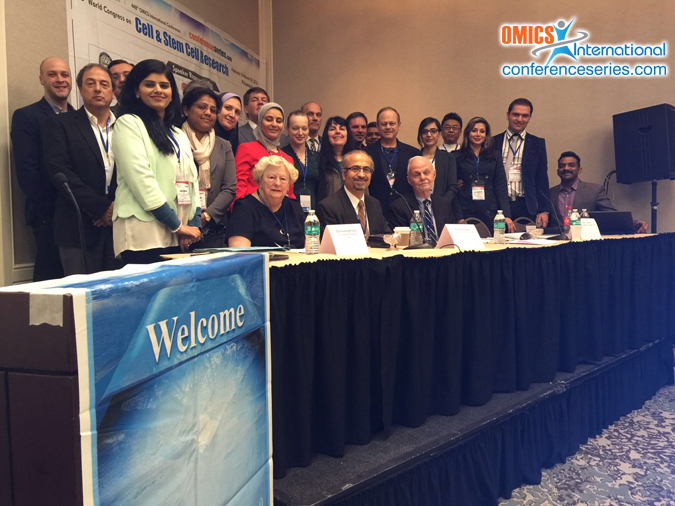
Thomas Bartosh
Texas A&M University Health Science Center, USA
Title: Development of Mesenchymal Stem Cell (MSC) Therapies for Cancer with 3-D Culture Systems
Biography
Biography: Thomas Bartosh
Abstract
Mesenchymal stem cells (MSCs) have many potential applications in cancer therapy. In particular, there is interest in exploiting the notable tumor-tropic properties of MSCs to deliver anti-cancer factors directly into tumors. Previously we reported that when MSCs are prepared as spheroids in 3-D hanging drop cultures, expression of tumor-suppressive factors (TRAIL, IL-24, CD82) was augmented and MSC size was effectively reduced resulting in improved vascular mobility and tumor-homing potential of the cells. Therefore, here we tested the effects of MSCs in spheroids on growth and phenotype of various cancer cells. Within hanging drop co-cultures of MSCs and breast cancer cells (BCCs), the MSCs rapidly surrounded the BCCs and promoted formation of cancer spheroids then disappeared 24-48 hours later. Further experiments revealed that BCCs internalized and degraded MSCs in spheroids, a process resembling cell cannibalism/entosis. The resulting BCCs showed markedly delayed tumorigenicity after injection into mice and displayed features of cellular dormancy. Moreover, sphere-derived MSCs (SDMs) delivered intravenously effectively reduced growth of breast cancer metastasis in lungs of mice. Importantly high cell viability, small cell size, and elevated expression of tumor-suppressive factors were not diminished with cryopreservation of SDMs suggesting that cell banks can be prepared for ‘off-the-shelf’ patient therapies. The results here provide new insight into the interactions between MSCs and cancer cells and indicate that MSCs prepared as spheroids have enhanced tumor-suppressive properties. Collectively, 3-D cultures of MSCs and cancer cells are useful to model the tumor niche in further research and to effectively precondition MSCs for cancer therapies.

